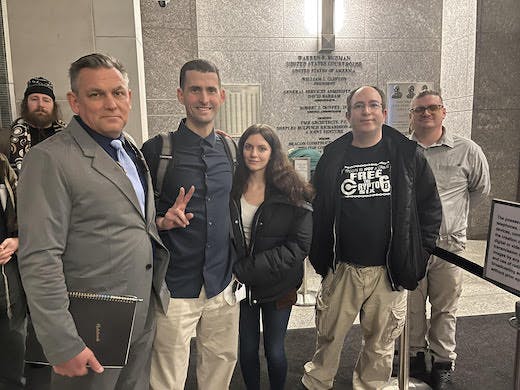
The GOP Will Beat History in the Midterms by Sticking to Its America-First Values
By LAWRENCE KUDLOW
|On the one hand are the bankers with institutional connections, like FTX’s founder, Sam Bankman-Fried, and on the other are the libertarian crypto-evangelists who flocked to Bitcoin early.

Already have a subscription? Sign in to continue reading

By LAWRENCE KUDLOW
|
By MATTHEW RICE
|
$0.01/day for 60 days
Cancel anytime
By continuing you agree to our Privacy Policy and Terms of Service.
By LUKE FUNK
|